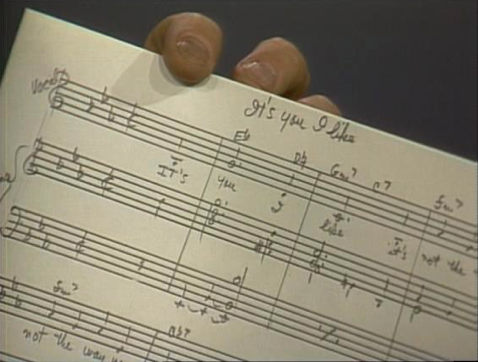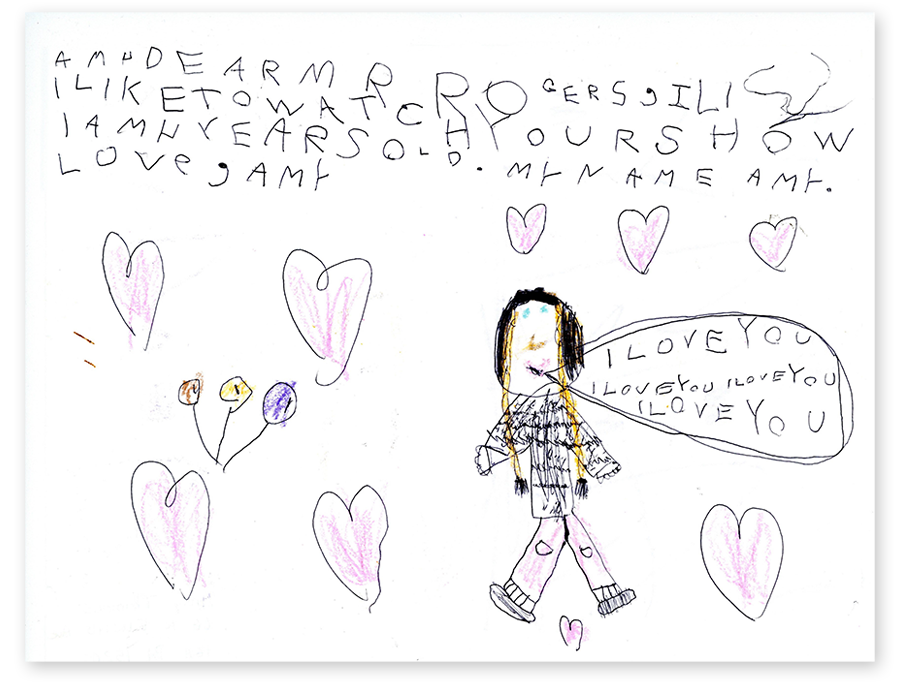Helping children feel good about who they are – that message was at the very core of Mister Rogers’ Neighborhood. Every day he reminded us that he liked us for who we were, with all our strengths and failings. Self-worth is at the very core of what children need. With his caring support, we wanted to become the best of whoever we were.
Mister Rogers wove his messages of self-worth throughout every aspect of the Neighborhood program – with his words, with his songs, and with his Neighborhood of Make-Believe stories. He gave us so many ways to understand what it meant to feel valued and loved.
Fred Rogers is a teacher … And what is he teaching? You are like nobody else. ‘There is only one person in the world like you, … and people can like you exactly the way you are.’
When children know they are loved and lovable, they grow into people who are capable of being loving with others. The other side of that message is that nobody’s perfect. Some of the Make-Believe stories are about puppet characters who now and then do things they shouldn’t. When they can talk about their feelings, whether they feel rejected or frustrated or scared, their friends help them know that doing something bad doesn’t make someone a “bad” person. As Fred said, “We are all longing for perfection, but that doesn’t mean you have to be ‘perfect’ to be loved.”
For some children, Mister Rogers was the only voice affirming that in their lives. For those fortunate to have loving families, it was a re-affirmation.

“…it’s not the things you wear, not the way you do your hair…It’s you I like.” It’s our insides that matter most, where our thoughts, feelings and ideas reside.
We all have many parts that make us who we are. So often children are told, “You aren’t big enough” and “You can’t do that yet.” It may seem to them that grownups get to do all the big and exciting things and make all the decisions, too. It’s natural that young children often feel small and powerless – and not very valued. But Mister Rogers reminded us that everyone has value. That message was even more helpful for children with disabilities. It’s reminiscent of one of Fred Rogers’ favorite quotes, framed on his office wall, from St. Exupery’s The Little Prince. “What is essential is invisible to the eye.”

“I’m proud of you – for the things you’re learning…for the many ways you’re growing.” But Mister Rogers didn’t stop there. It wasn’t enough to tell us that a grownup was proud of us. Mister Rogers took it deeper. He made sure to add “and I hope that you are proud of you, too.” It’s much more important that the good feeling of pride belongs to us – and we earned it.
Mister Rogers gave us these universal and timeless messages, and they continue to resonate with us today. As we deal with the tasks we struggle with, even as adults, we can remember those words and those songs, knowing that we are loved and valued – just because of who we are. How good it is to know that even on our darkest days that we have value.
You are a very special person. There is only one just like you. There’s never been anyone exactly like you in the history of the earth, and there never will be again. And people can like you just because you’re you.